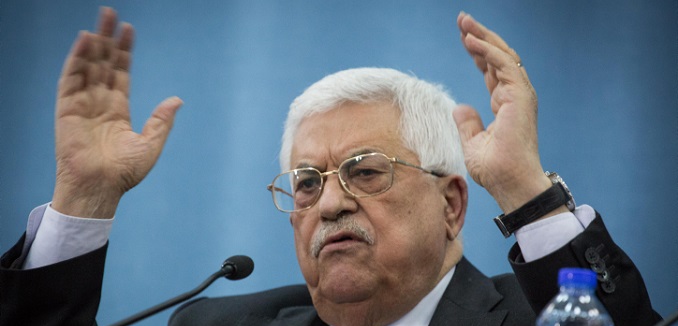Palestinian leaders have refused to participate in a peace summit in Cairo unless the Jewish state meets several of their preconditions, The Times of Israel reported Wednesday.
The preconditions would have Israel accept a freeze on construction in the West Bank, set a timetable for negotiations, and agree to negotiations based on the pre-1967 lines. Israeli Prime Minister Benjamin Netanyahu has repeatedly stated, most recently in a meeting with Egyptian Foreign Minister Sameh Shoukry on Sunday, that Israel is ready to conduct bilateral negotiations without preconditions. Shoukry also met with Palestinian Authority President Mahmoud Abbas last month.
Egypt is developing a framework for renewal of negotiations that would be accepted by both sides, an Egyptian official told Times reporter Avi Issacharoff, but it might be too early to send formal invitations since the sides are not yet in agreement on the goals of the talks.
In a press conference alongside Netanyahu before their meeting, Shoukry told reporters that Cairo is dedicated to “a just and comprehensive peace between the Israeli and Palestinian people.”
“The goal we aim to achieve through negotiations between the two parties is one that is based on justice, legitimate rights and mutual willingness to coexist peacefully in two neighboring independent states in peace and security,” he said.
“Egypt remains ready to assist in achieving this goal,” he said, stressing that “such a momentous achievement will have a far-reaching, dramatic and positive impact on the overall conditions in the Middle East. The current state of affairs is, unfortunately, neither stable nor sustainable.”
Israel froze construction in the West Bank for ten months in 2009-10 to assuage Palestinian demands as part of U.S.-brokered peace talks, but Abbas refused to meet with Netanyahu until the final month.
Then-Secretary of State Hillary Clinton remarked in 2012 that the Palestinians’ lack of action during the freeze, which they advocated for, was a missed opportunity for peace:
I stood on a stage with [Netanyahu] at 11 o’clock – Israelis always meet late at night, I don’t understand it – but 11 o’clock at night, midnight, and I said it was unprecedented for any Israeli prime minister to have done that. I got so criticized. I got criticized from the right, the left, the center, Israeli, Jewish, Arab, Christian, you name it. Everybody criticized me. But the fact was it was a 10-month settlement freeze. And he was good to his word. And we couldn’t get the Palestinians into the conversation until the tenth month.
So, look, I’m not making excuses for the missed opportunities of the Israelis, or the lack of generosity, the lack of empathy that I think goes hand-in-hand with the suspicion. So, yes, there is more that the Israelis need to do to really demonstrate that they do understand the pain of an oppressed people in their minds, and they want to figure out, within the bounds of security and a Jewish democratic state, what can be accomplished.
And I think that, unfortunately, there are more and more Israelis and Palestinians who just reject that idea out of hand: Why bother? Why try? We’ll never be able to reach an agreement with the other. But in the last 20 years, I’ve seen Israeli leaders make an honest, good-faith effort and not be reciprocated in the way that was needed.
[Photo: Hadas Parush / Flash90]




